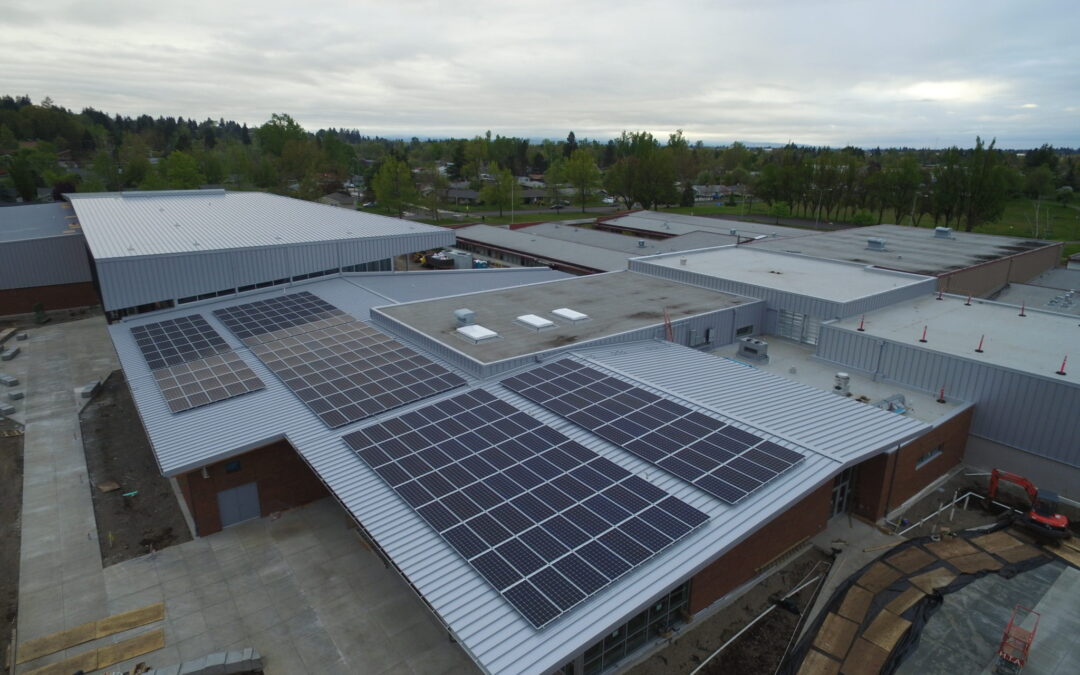Advanced Energy Systems completed a 91.77 kW solar electric system for 4J ATA Jefferson Middle School in 2017. The array consists of 266 SolarWorld 345 watt modules, with Enphase C250 micro-inverters, and a Solectria PVI 23000TL inverter. This solar electric system will produce approximately 102,138 kWh in the first year of operation, and more than 3,286,981 kWh over the course of its lifetime, offsetting 1,492 tons of CO2 emissions.
Commercial solar panels offer a transformative solution for businesses seeking to optimize operations and elevate their brand image. Designed to handle the higher energy demands of commercial properties, these solar systems provide substantial cost savings over time. Beyond energy efficiency, solar power can strengthen a company’s brand reputation, increase property value, and enhance employee satisfaction through sustainable workplace practices. This article explores how commercial solar boosts business operations, attracts eco-conscious customers and provides a competitive edge in today’s market.
What are Commercial Solar Panels?
Commercial solar panel systems are specifically designed to meet the higher energy demands of businesses, which typically require more power than residential properties. These installations often cover large areas, such as rooftops or unused land, and utilize robust systems to generate substantial energy output. Unlike residential systems that generally max out at 20-30 kW, commercial systems can exceed 100 kW or even reach megawatt-scale capacities, which directly boosts business operations by helping companies reduce operational costs and hedge against fluctuating utility prices¹.
How Does Commercial Solar Differ from Residential Solar?
The differences between commercial and residential solar systems highlight how commercial solar boosts business operations through scale, design, and financial benefits tailored to business needs. Key distinctions include:
Comparison: Commercial vs. Residential Solar
| Feature | Residential Solar | Commercial Solar |
|---|---|---|
| Scale and Energy Output | 20-30 kW | 100 kW or more (up to megawatt scale) ¹ |
| System Design | Simple rooftop installation | Advanced configurations such as ground mounts, carports, and three-phase inverters ² |
| Tax Credits | General credits | Additional benefits like MACRS and accelerated depreciation ¹ |
| Utility Rate Structures | Flat rates | Complex commercial rates with demand charges and time-of-use pricing ² |
| Permitting and Regulations | Simple local requirements | More complex requirements: zoning, structural evaluations, and additional permits ² |
These distinctions allow commercial solar systems to provide the scale, efficiency, and financial advantages businesses need to optimize operations and reduce energy costs.
How Can Solar Energy Improve Public Image and Brand Reputation?
Adopting solar energy can significantly enhance a company’s reputation, especially in environmentally conscious regions like Oregon, where sustainability is highly valued. Commercial solar boosts business operations through energy savings and helping companies appeal to eco-conscious customers and improve their public image. In Oregon, where environmental responsibility is crucial, embracing renewable energy fosters stronger customer loyalty and effective brand differentiation.
Real Case: Highlighting solar initiatives in marketing materials positions a business as a leader in environmental responsibility, attracting customers who prioritize green practices. For example, Advanced Energy Systems (AES) partnered with Kettle Foods to install one of the largest solar arrays in the Pacific Northwest. This initiative enables Kettle Chips to produce 250,000 bags of chips annually using solar power. With over 600 solar panels, this project reinforced Kettle Foods’ commitment to sustainability, generating increased customer engagement and media coverage. The positive publicity from the solar installation translated into higher sales and greater brand loyalty, demonstrating the broader impact of going solar³.(Investing in solar energy is not only good for the planet but also a smart business decision. Learn more about Why Commercial Solar Is a Smart Investment and how it can benefit your company).

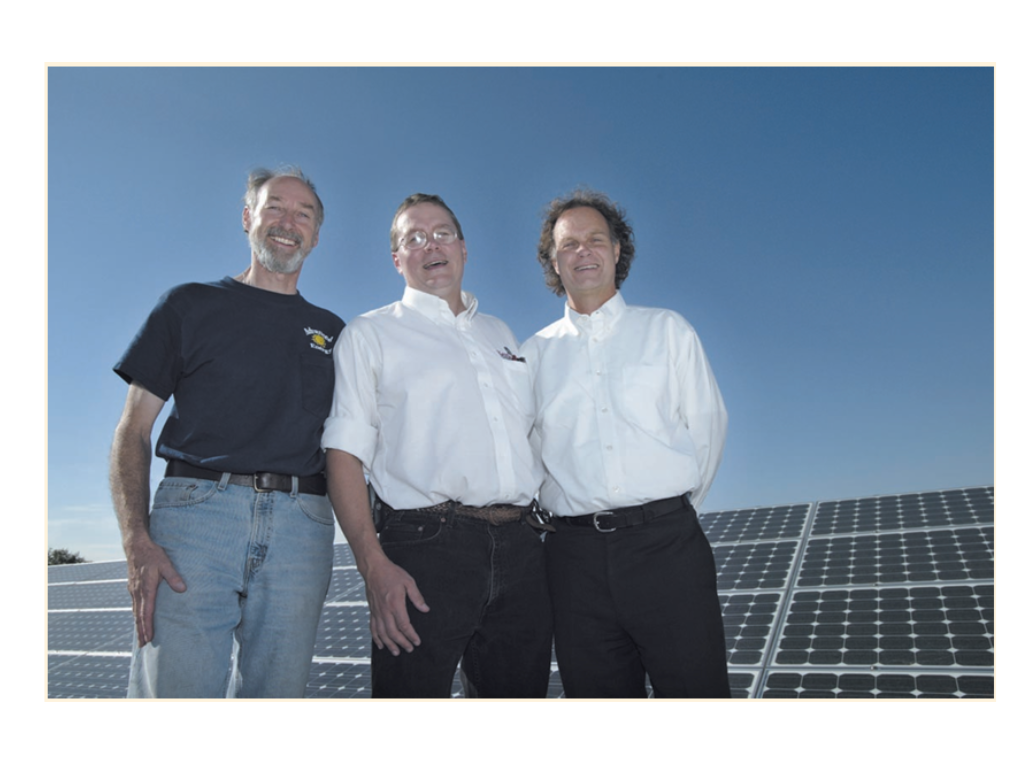
David Parker, Advanced Energy Systems
owner, helped Kettle Foods’ Russ Read,
facilities manager, and Cameron Healy,
president and founder, harness the power
of Oregon sunshine.
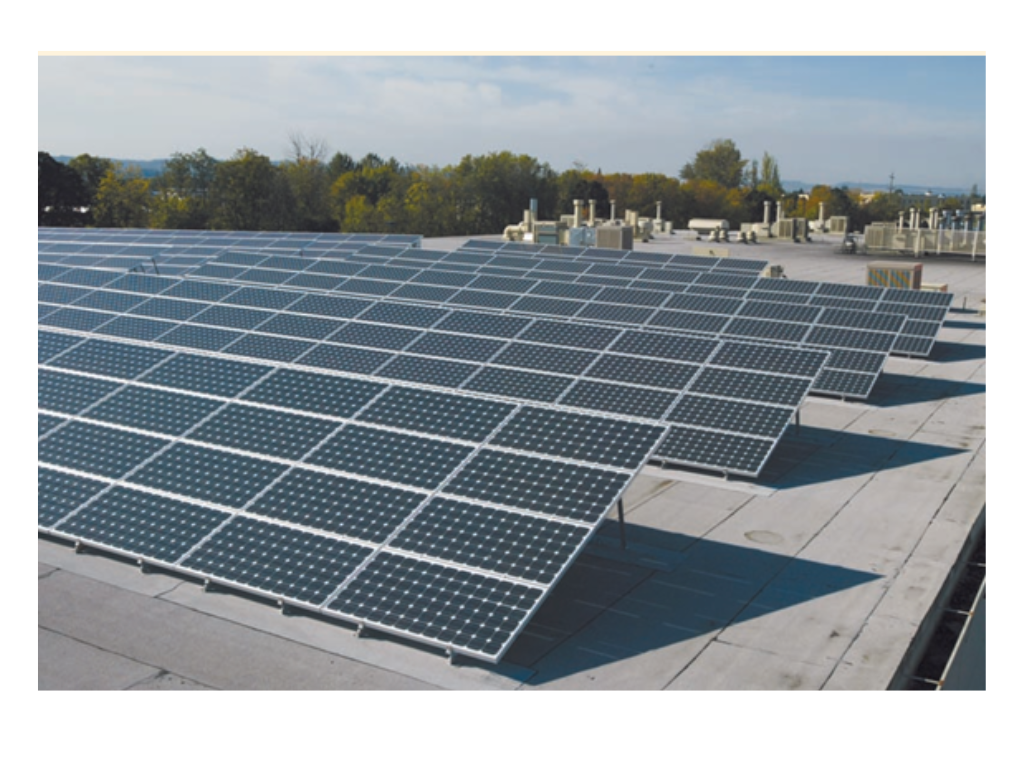
The 616 Sharp solar panels mounted on the Kettle
Foods roof will produce approximately 120,000
kilowatt hours of electricity each year. The solar
installation is the largest in the Northwest.
Increase in Property Value
Installing solar panels can significantly increase the property value of commercial buildings by reducing operating costs and enhancing energy efficiency. Solar-equipped properties attract more interest from potential buyers or tenants due to their long-term financial benefits and lower utility costs.
While a Zillow study found that residential properties with solar installations tend to sell for about 4.1% more than comparable homes without solar, similar research shows promising correlations for commercial properties⁴.
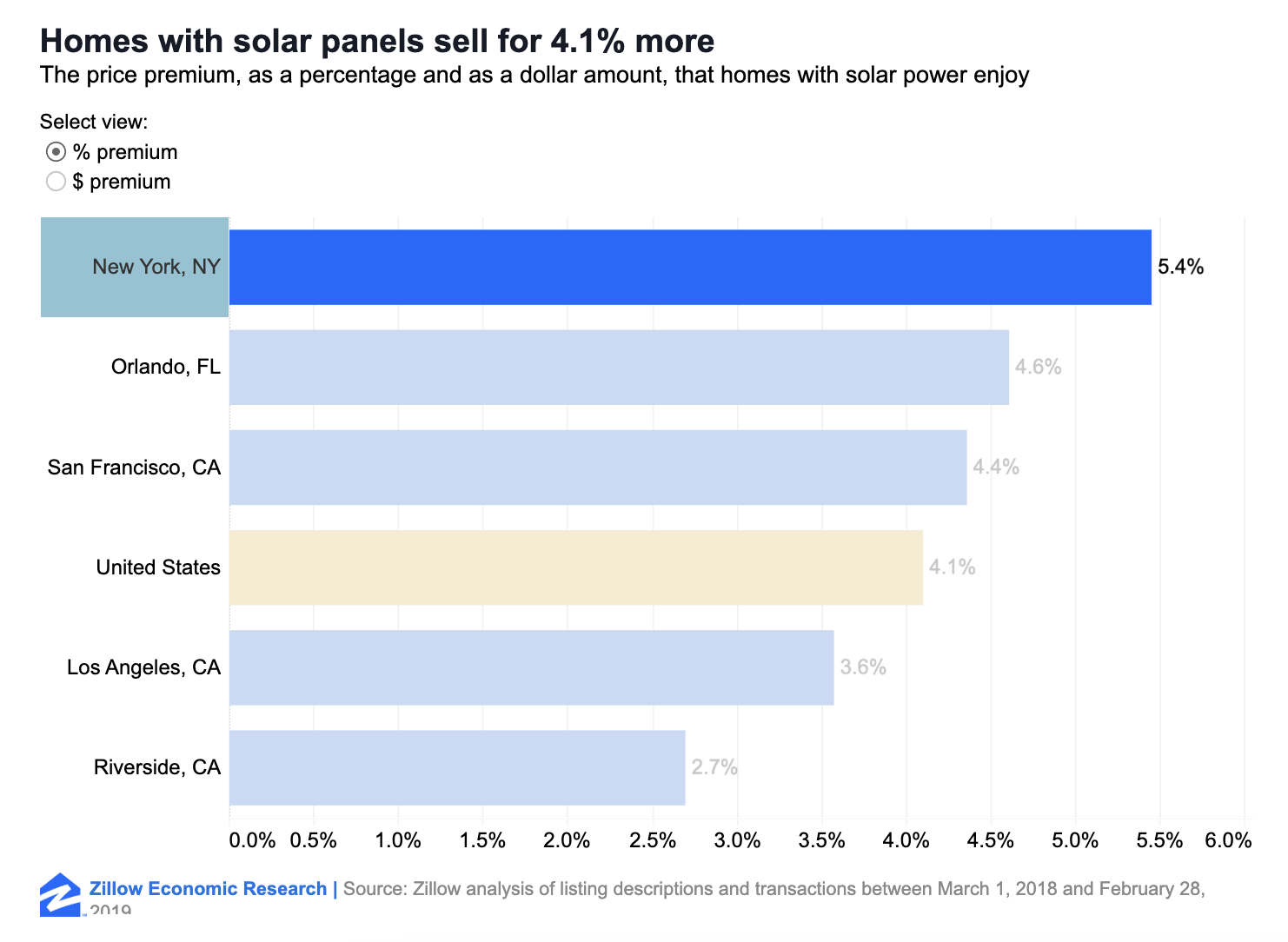
For example, a commercial building in downtown Portland that installed solar panels became significantly more appealing to environmentally conscious tenants. The building’s reduced energy costs and enhanced sustainability credentials made it stand out in the market. By lowering operational expenses and improving eco-friendly reputations, solar energy offers long-term financial benefits, making it a strategic investment for businesses seeking to enhance the value and attractiveness of their real estate portfolios. This demonstrates how commercial solar boosts business operations by driving financial growth and market appeal.⁵

Potential Benefit for Employees with EV Charging
The U.S. Department of Energy highlights the numerous benefits of installing EV charging stations for employees, including increased satisfaction, improved retention, and enhanced sustainability efforts. According to DOE research, employees are six times more likely to drive an electric vehicle if their workplace provides charging, even though most charging is done at home⁶.
For example, a business in the Bay Area installed 57 Level 2 EV chargers powered by solar energy and saw significant benefits, with 50-100 EVs charging daily. The company implemented a real-time charging system that ensures efficient energy use, lowering costs by using solar integration. Management reported increased employee satisfaction and retention, as the availability of EV chargers helped foster a greener company culture. This initiative reduced reliance on grid electricity and enhanced the company’s environmental reputation⁷.
For businesses in states like Oregon, installing EV chargers can also tap into available incentives to offset initial costs. By incorporating EV charging stations into workplace infrastructure, companies can show their commitment to sustainability, improve public image, and differentiate themselves from competitors. Offering EV charging as a perk helps boost employee satisfaction, retention, and engagement while contributing to lower commuting emissions⁸.
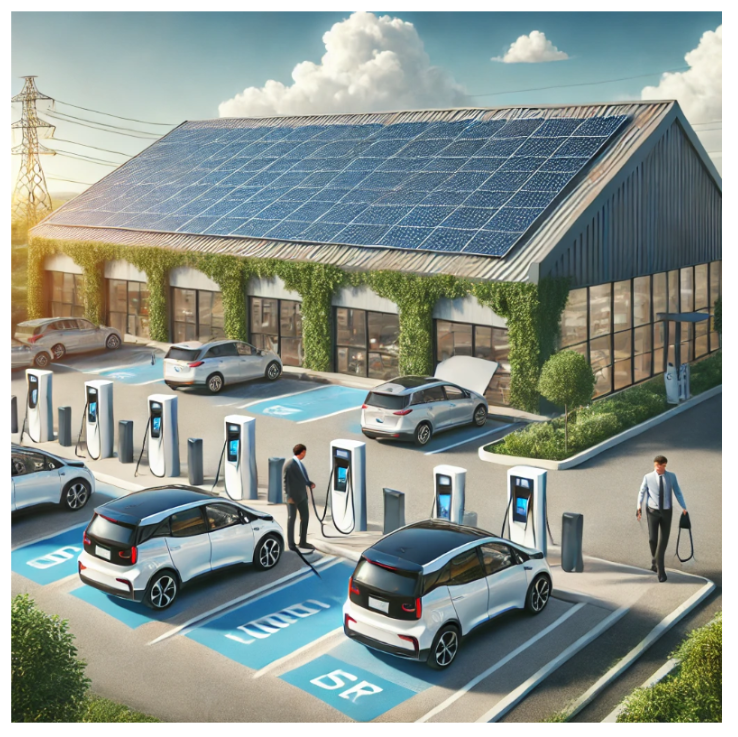
Unlocking the Full Benefits of Solar Energy
Commercial solar energy offers businesses a unique opportunity to lower operational expenses while making a meaningful environmental impact. Companies can achieve significant savings and greater energy independence by leveraging features such as high energy output, large-scale installations, and advanced technologies like EV charging stations. In regions like Oregon, additional incentives and rebates make solar adoption even more appealing, helping businesses stabilize costs amid fluctuating utility rates and generate long-term financial returns.
As companies become more energy-independent, they protect themselves against rising energy prices and contribute to a cleaner, more resilient energy grid. Beyond financial benefits, embracing solar power and sustainability initiatives elevates a company’s public image, appealing to eco-conscious consumers, investors, and stakeholders. This demonstrates how commercial solar boosts business operations by improving energy efficiency, reducing costs, and enhancing brand reputation.
To make the most of your solar investment, start by exploring actionable strategies in our guide: How Can Businesses Maximize Their Solar Energy Savings?. Once you’re ready to unlock the full benefits of solar energy for your business, contact us to learn how we can help you transition to clean, cost-effective energy solutions and establish your leadership in the green economy.
Sources:
- SolarReviews. (n.d.). Installing commercial solar panels: Everything you need to know. Retrieved from https://www.solarreviews.com/blog/installing-commercial-solar-panels
- Aurora Solar. (n.d.). The critical differences between residential and commercial solar. Retrieved from https://aurorasolar.com/blog/the-key-differences-between-residential-and-commercial-solar/
- Pollution Prevention Information Clearinghouse. (n.d.). Kettle Foods: Solar success story. Retrieved from https://p2infohouse.org/ref/06/05520.pdf
- Zillow. (2019). Solar study: Homes with solar panels sell for 4.1% more. Retrieved from https://www.zillow.com/research/solar-panels-house-sell-more-23798/
- Microgrid Media. (n.d.). How can solar power increase your commercial property value? Retrieved from https://microgridmedia.com/how-solar-power-can-increase-your-commercial-property-value/
- U.S. Department of Energy. (n.d.). Workplace charging for electric vehicles. Retrieved from https://afdc.energy.gov/fuels/electricity-charging-workplace
- Afzal, H. et al. (2022). The impact of EV charging infrastructure on employee satisfaction and retention. Retrieved from https://ar5iv.labs.arxiv.org/html/2203.06847
- Enphase Energy. (n.d.). Why should businesses invest in EV charging stations? Retrieved from https://enphase.com/ev-chargers/learn/why-should-businesses-invest-ev-charging-stations

